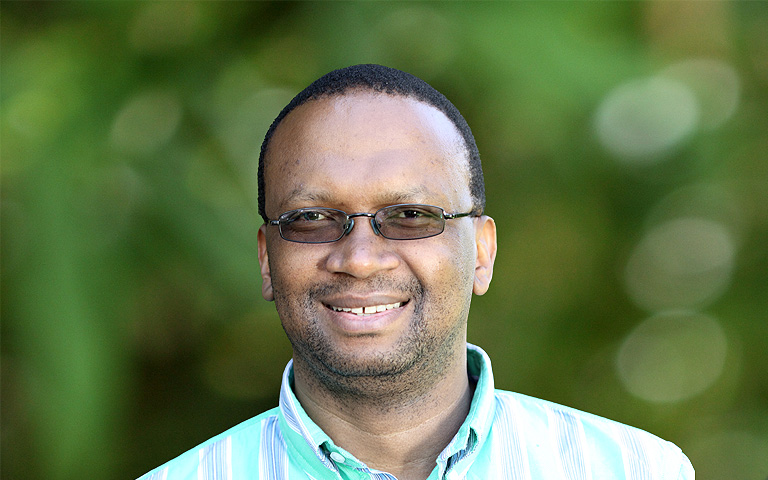
Fellow Jabulani Sikhakhane voices his opinion on Godongwana’s mammoth task
Finance Minister Enoch Gondongwana and his cabinet must take government finances more seriously. This is the opinion of Fellow Jabulani Sikhakhane (Class V Mayihlome) in an article that was published on budget speech day on businesslive.co.za, where he wrote: “These little Dutch boy approaches to running government finances won’t work.”
Jabulani’s reaction to the cabinet’s lack of commitment was not only strong but also deeply concerned. He pointed out that the implementation of critical and urgent economic reforms is being neglected. In a comment to ALI, Jabulani lamented, “There was little to be done in terms of the quality of politicians.” He firmly believes that the responsibility ultimately lies with the voter.
ALI asked him the following questions:
With your background as a Fellow at the Africa Leadership Initiative, is it possible to fix governing leadership, work ethic and commitment?
“It’s a difficult thing. Political leadership is determined by the country’s voters. If it fails, it just comes back to the voters. All countries battle with political leadership, but the saving grace of most, is a strong and competent civil service. Unfortunately, in the second part of Zuma’s tenure during state capture, many competent people left our civil service.
The relationship between politicians and civil servants needs to be reevaluated. To safeguard civil servants, policy guidelines must be strengthened. When politicians and ministers are tasked with implementing a certain mandate, it is the role of the professionals (civil servants) to ensure that the proposed policy aligns with constitutional and other requirements. Civil servants should be given the autonomy to integrate it into the system. When a politician lacks understanding of the technical aspects of a proposal and disregards the specialist opinion of civil servants in that field, it becomes a problem.
“There is little to be done in terms of the quality of politicians; it’s more about strengthening our civil service. We need to employ more qualified people with the necessary skills. There are building blocks in place to start this process. Legislation was passed early last year to strengthen the civil service, and The National School of Government has been providing training in technical skills and policy-making. But we are still some steps away from having all that machinery working effectively.
The outcome of the forthcoming election is all important.
Herewith Jabulani’s column as it appeared online:
As has become custom, Finance Minister Enoch Godongwana will pull yet another little Dutch boy trick when he presents his annual budget on Wednesday. That is because he has been let down by his cabinet colleagues, who have failed to implement with urgency and energy the economic reforms required to raise the country’s economic capacity and growth rate.
So, every year Godongwana has to stick another finger into a leaking dyke. The latest proposal now involves plundering the country’s foreign exchange reserves — a Band-Aid on the country’s gaping, festering economic and fiscal wound — because the administration of President Cyril Ramaphosa has failed to do what is required to fix the economy that generates the resources the government needs.
But such little Dutch boy approaches to running government finances won’t work. That is because the country has had a decade of economic stagnation, and its economic crisis is long term and structural in nature. The current administration has been preaching structural reforms, but their implementation progress has been slow and patchy.
Michael Sachs laid all of this out clearly in a presentation to last week’s public debt conference hosted by the Alternative Information and Development Centre. Sachs, who now leads the Public Economy Project at the Southern Centre for Inequality Studies at Wits University, is the former head of National Treasury’s budget office.
“The problem is not fiscal space as such, but our capacity to envisage and commit to a sustainable path of transformation and growth out of the current stagnation,” Sachs said. He warned that liquidating the country’s financial assets and raiding fiscal savings (buffers) can only bring temporary financial relief, but “cannot resolve the underlying macro-fiscal crisis”.
The crisis is an outcome of “chronic stagnation of production and institutional failures in the public organisations responsible for infrastructure investment, which are acting as a fetter on capital accumulation”, he said. If badly managed, the measures the Treasury is implementing or proposing could create more problems, including financial instability, adding to the government’s “long list [of] development headaches”.
Gas crisis
Sachs pointed to Eskom and Transnet, warning of the risks involved. “For instance, if financial support (R254bn) to Eskom is not supported by durable improvements in the productivity and efficiency of SA’s electricity supply industry, the current problem is likely to recur and worsen. The same goes for Transnet and reforms to the trade infrastructure services industry.”
The required reforms are well known. The network through which goods move in and out of the country is in worse shape now than a decade ago. Then there’s the energy crisis. Industrialists recently raised the alarm — not for the first time — about the gas crisis that will hit SA soon. The municipal fabric is threadbare. Fewer passenger trains are running today than a decade ago. Public health facilities can’t cope with the rising demand for healthcare services. The list goes on.
These are all factors that are holding back the economy and raising the cost of living for South Africans, especially the poor. And slow economic growth means fewer rands and cents for government coffers, which in turn means borrowing more money. The debt burden has increased so much that Sachs says the country is in a “high interest rate trap”. Core spending per citizen has contracted since 2015, according to Sachs, who has previously explained how the expenditure cuts have disproportionately fallen on the poor and unemployed because they depend on public services such as education and health.
Godongwana will, of course, talk about all these issues, as he has every year since he became finance minister. That is not his fault, but as finance minister he must live with the consequences. It is his cabinet colleagues who have failed to remove obstacles to economic growth. The Ramaphosa administration’s score on the implementation of economic reforms is very low.
It finds applying a Band-Aid to the gaping socioeconomic wound easier than girding loins and attacking what stops the economy from growing faster and creating jobs. All countries provide social support for their citizens, but such measures are a floor below which decent societies do not allow each other to fall.
So, when more people require such assistance, it is a sign that a society’s socioeconomic system isn’t working. That’s not something to be celebrated. Yet, the ANC’s chest swells with pride when it tells the world that more than 26-million South Africans are on social support.
It’s that kind of failure that leaves Godongwana plugging multiple leaks in the dyke. If socioeconomic failure is not reversed urgently, he will run out of fingers.
Sikhakhane, a former spokesperson for the finance minister, National Treasury and SA Reserve Bank, is editor of The Conversation Africa. He writes in his personal capacity.
Click on the link to read the article online: https://www.businesslive.co.za/bd/opinion/columnists/2024-02-21-jabulani-sikhakhane-failed-by-his-cabinet-mates-godongwana-has-to-pull-another-dyke-trick/#google_vignette









